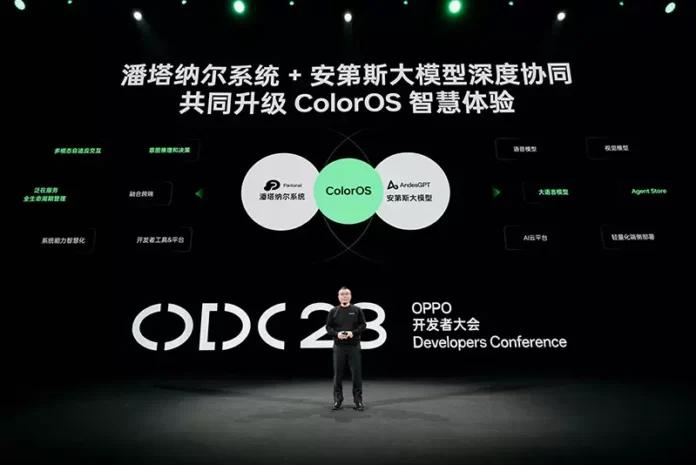Oppo says that the AI model has three major technical characteristics: dialogue enhancement, personalization and cloud-device collaboration
Chinese handset manufacturer Oppo has furthered its commitment to generative AI (GenAI) with the launch of AndesGPT, a self-trained, an in-house large language model (LLM) designed to improve applications used in its smartphone operating system. Announced at its 2023 OPPO Developers Conference (ODC23) in Shanghai, the model was paired with the unveiling of the company’s latest mobile operating system, the ColorOS 14 platform.
In a press release, Oppo stated that AndesGPT has three major technical characteristics: dialogue enhancement, personalization and cloud-device collaboration. “Its core capabilities focus on knowledge, memory, tools, and creation,” said the company.
Additionally, the genAI platform will support Breeno, Oppo’s smartphone assistant used in the company’s Chinese market devices. The company claimed that with this upgrade, Breeno can now cover more than 400 frequently used system settings and perform AI content generation tasks. AndesGPT has also brought new capabilities to Oppo’s cross-device software platform, called Pantanal. Now, the platform can provide “more accurate understanding of user intention and context, more intelligent combinations of ubiquitous services, and more intuitive user interaction,” claimed the company.
The company has reportedly established more than 45 AI-related partnerships with institutions in China and abroad.
The telecom industry, from servicer providers to smartphone makers, have been focused on the development of telco-specific GenAI models. Earlier this week, for instance, Amdocs announced that it will use Nvidia’s AI foundry service to build custom LLMs for the global telecommunications industry, while Samsung Electronics unveiled Galaxy AI, an AI system that includes its own generative language model called Gauss Language.

